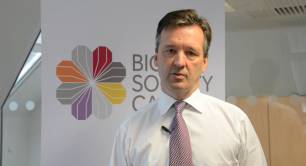Strictly social investment? 10 lessons from Bridges
![[file:field_file_image_alt_text]](https://www.pioneerspost.com/sites/default/files/styles/node-teaser-large/public/images/article/dance%20step%20pic.jpg?itok=nA5Ofr6G)
It sounds like the latest move from Strictly Come Dancing – but the “lock-step” is actually a key technique for impact investors.
So says Bridges Ventures, one of the UK’s longest established social investors, who this week celebrates a decade of investing for impact and sustainable growth.
Bridges has learnt how to refine its approach for selecting the businesses to back by analysing whether the investment’s impact and competitive returns will go in ‘lock-step’ – and therefore a good fit for the Bridges Sustainable Growth Funds (or the Bridges Property Funds).
If the ‘lock-step’ is not the right move, try the ‘impact first’ – where impact will be prioritised over fully commercial investor returns, and therefore be a potential investment for the Bridges Social Entrepreneurs Fund.
The lesson is one of 10 outlines in a new report celebrating Bridges’ 10 years. It gives a detailed account of the key milestones that have helped shape the sector since Bridges was founded – starting with the work of the UK’s Social Investment Task Force, through to the launch of the United Nations Principles for Responsible Investment, and to the creation of Big Society Capital, the UK’s first social investment bank.
By analysing the firms’ own growth and achievements, the report aims to show how investing for impact has evolved from being a small niche within the sustainable investment universe, to becoming a fast-growing, attractive investment proposition that is finding its place within conventional investment portfolios and across asset classes.
Bridges was created in 2002 with the aim to focus exclusively on opportunities where investments can generate attractive investor returns through helping meet pressing social or environmental challenges – be it backing business that generate jobs in underserved areas, building environmentally friendly care homes for the elderly, or providing flexible financing for innovate community transport models. In pursuing this strategy over the last ten years, the firm has innovated a range of investment vehicles across three main fund types: Bridges Sustainable Growth Funds, Bridges Property Funds and Bridges Social Entrepreneurs Fund.
Commenting on the report Philip Newborough, Managing Partner and Co-Founder of Bridges Ventures, said: “Over the last ten years we have seen social and environmental issues becoming a more integral part of the investment process and we are very proud to have played such an important role in the establishment and growth of impact investment. In this report we reflect on our experience and share some of the lessons that the last decade has taught us, to hopefully show that social impact and attractive financial returns can go hand-in-hand.”
Ten years, ten lessons
1. Where there are pressing societal challenges, there can also be rapid growth opportunities: ten years ago most people thought that social impact and financial returns were at best incompatible and at worst mutually exclusive. Bridges’ investments have hopefully shown that impact and commercial returns can go hand-in-hand.
2. Impact can be an engine of value across asset classes: over the last decade Bridges has innovated a variety of models that use investment to drive impact, ranging from growth capital for high-impact SMEs, to funds for property investment in care homes, to flexible funding for social enterprises.
3. The value in value for money: ‘consumer champion’ companies seeking to provide value-for-money for underserved areas can offer attractive growth opportunities and strong impact potential.
4. Clarifying investment selection: the ‘lock-step’ and the ‘impact first’: Bridges has learnt how to refine its approach for selecting the businesses to back by analysing whether the investment’s impact and competitive returns will go in ‘lock-step’ - and therefore a good fit for the Bridges Sustainable Growth Funds (or the Bridges Property Funds) - or if, instead, impact will be prioritised over fully commercial investor returns – and therefore a potential investment for the Bridges Social Entrepreneurs Fund.
5. The importance of alignment in property investing: a key challenge of investing in properties that demonstrate environmental leadership is to ensure that sustainable construction methods are followed by energy efficient operating practices by the tenant. By partnering closely with both the developer and the operator, Bridges can agree upfront on the ‘win-win’ strategy of creating commercial and societal value.
6. How the structure of social enterprises can create a competitive advantage: through the work of Bridges Social Entrepreneurs Fund, Bridges has learnt that there are mainstream sectors where the structure of social enterprise may create a competitive advantage over traditional business.
7. Policy as a catalyst for change: over the last decade the UK’s government has increasingly recognised the potential of high-impact innovative investment models, backing initiatives to bring the private sector to where it might not otherwise have ventured.
8. It’s not just about what we do, it’s about how we do it: While Bridges selects companies that will inherently create impact for what they do, they also focus on how they do it, tracking environmental, social and governance (ESG) impacts that signal both risks and opportunities for value creation.
9. Finding a place in conventional investment portfolios: Bridges’ investor base has evolved to include a broad group ranging from banks to pension funds, to private families and individuals, to endowments and charities.
10. A variety of skills, a shared vision: the variety of skills of the Bridges team, united by values and a shared vision, has been key to straddle the worlds of traditional finance and social impact and to encourage innovation.
Bridges Ventures Ten Year Report: a decade of investing for impact and sustainable growth is available here.
Hear Anthony Ross, partner and head of Bridges Social Entrepreneurs Fund, reflect on 10 years of social investment in our video, Social investment: a watershed moment.

